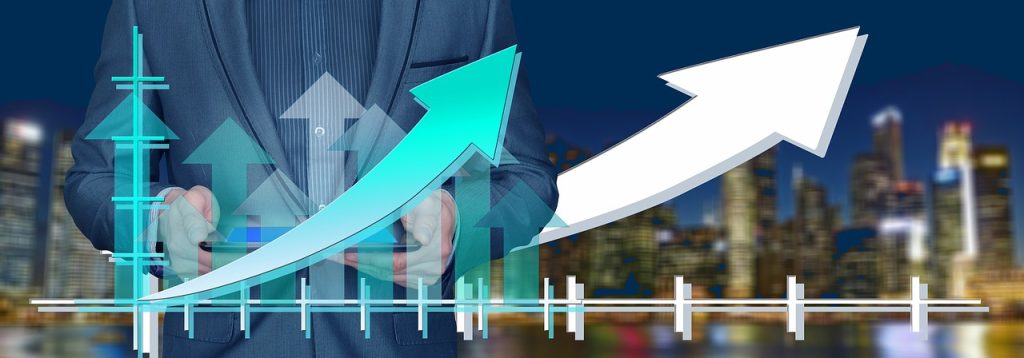Smart Solutions for Smart Cities
Since the introduction of the concept of Smart Cities, the internet of things has been a critical factor in smart city development. However, as technology continues to transform people’s lives, more countries are adopting internet of things (IoT) technology.
Cities must understand the benefits and opportunities of the Internet of Things for Smart Cities because there is so much potential and opportunity in so many sectors, including urban mobility, security, sustainability, maintenance, healthcare, and management. One of the fundamental building blocks of next-generation smart cities development is sophisticated interconnectivity.
It will be possible to connect citizens and governments in ways never before possible. The Internet of Things (IoT) will provide smart cities with numerous advantages, but this degree of connectivity will also present new difficulties.
Professional Suggestion: Lahore Smart City is Pakistan’s second smart city project; now is the time to invest in it.
What Does “Smart City” Mean?
The Smart Cities is a digital concept that utilizes IoT technologies. These technologies are used to control lights, sensors, and meters, as well as to collect and analyze data.
Furthermore, such data can be used to improve infrastructure, public utilities, and services, among other things. However, the concept of Smart Cities has been introduced in Pakistan under the names Capital Smart City and Lahore Smart City.
What Is The Importance Of The Internet Of Things For Smart Cities?
The Internet of Things (IoT) has emerged as a critical need. With populations of 38 million, 26 million, and 21 million, the world’s largest cities are currently Tokyo, Shanghai, and Sao Paolo.
Today, these megacities are known for how many people live there. In the future, there will be a great many more of them, and their populations will be even denser. By 2030, however, more than 60 percent of the world’s pollution will reside in urban areas, according to online statistics.
Large populations, on the other hand, necessitate significant resources such as easy access to water, clean air, environmentally friendly transportation, proactive sanitation, and an intelligent waste management system.
The cities of the future will be able to meet the demands of their residents in an effective and efficient manner.However, Capital Smart City carries all the smart facilities of smart cities.
The Internet of Things can be used in a variety of ways:
• Monitoring and management of traffic
• Water level and flood level monitoring
• Waste Management
• Smart Parking
• Analytics and video surveillance.
• Linked streetlights
• Weather monitoring
• Monitoring of air quality and pollution
• Water smart metering
• Detection of fires and smoke
• Monitoring of water quality

How is IoT technology making cities smarter and better?
The deployment of Internet of Things technology is accelerating in cities, creating opportunities to make them more livable, efficient, and sustainable. When integrated into a city’s infrastructure, IoT can help to make a number of city services more efficient and effective.
IoT can also help to make cities more livable by improving air quality and reducing traffic congestion. In addition, the IoT can help to make cities more sustainable by reducing energy consumption and waste.
The following are some examples of how IoT is making cities smarter and better:
• Efficient city services: IoT can help to make city services more efficient through the use of sensors and data collection.
• Livable cities: IoT can help to improve air quality and reduce traffic congestion in cities.
• Sustainable cities: IoT can help to reduce energy consumption and waste in cities.
The future of the internet of things (IoT):
The future of technology is often spoken about in terms of convenience, but there is so much more to it than that. The future of the internet of things (IoT) is about how we will use technology to make our lives more efficient and sustainable. The smart city is at the heart of this future.
A smart city is an urban area that uses various types of electronic data collection sensors to supply information which is used to manage assets and resources efficiently.
This results in a better quality of life for citizens, less environmental pollution, and a more productive economy. Islamabad is set to become the first smart city in Pakistan with the launch of Capital Smart City.
This city will be a model for other cities in the country to follow. It is an ambitious project that will surely change the way we live and work for the better.
A List Of Smart Cities In The World:
The world is rapidly moving toward the Smart Cities concept. However, according to an online statistic, there are more than 250 smart city projects in 178 cities around the world.
In addition, by 2026, the global market for smart city solutions and services is anticipated to reach nearly $98 billion. Some of the most advanced global projects and cities utilizing smart city concepts include:
• NewYork
• London
• Capital Smart City (Islamabad)
• Singapore
• Barcelona
• Lahore Smart City
• Oslo
• Toronto
• Tokyo
Bottom Line:
The Smart City concept is the buzzword these days, and no doubt everyone is discussing its significance. The incorporation of the Internet of Things (IoT) into the Smart City will provide enormous benefits to the public. Real estate in Pakistan is also benefiting from the latest global boom.
As a result, two megaprojects have been introduced in Pakistan to deal with the recent changes in lifestyle, Capital Smart City and Lahore Smart City. If you want to make a better investment in Pakistan, Capital Smart City and Lahore Smart City are two of the best projects to date.
